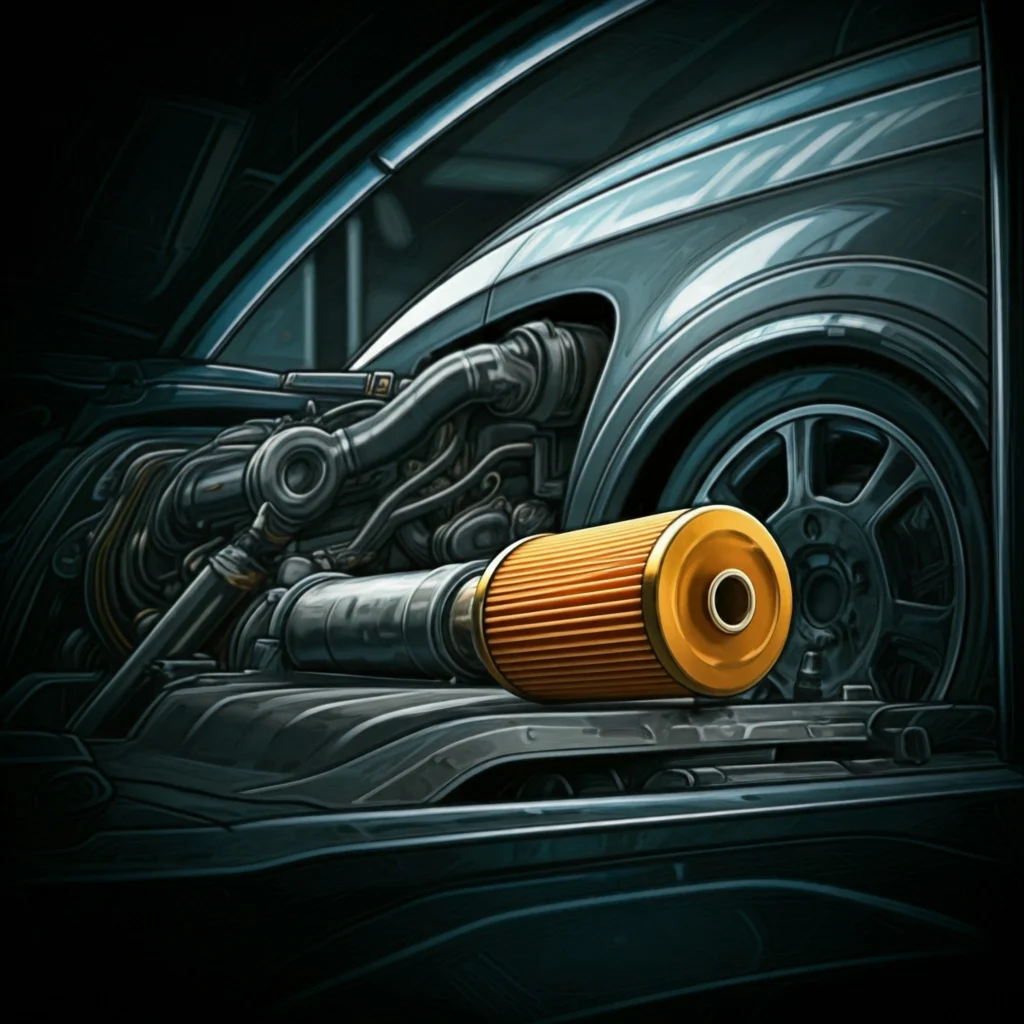
How Often Should You Change Oil Filter?
What is an Oil Filter?
First, we need to understand what an oil filter is. During the operation of the engine, metal shavings, dust, carbon and gum deposits oxidized at high temperatures, and water continuously mix into the engine oil. The role of the oil filter is to filter out these mechanical impurities and gums, keeping the engine oil clean and protecting the engine as much as possible.
Factors Affecting Oil Filter Replacement
What factors affect the service life of an oil filter? They can be roughly divided into the following points:
- Driving Environment: In environments with a lot of dust or poor air quality, such as muddy country roads, dusty city streets, or rugged mountain roads, the oil filter will accumulate impurities more quickly and thus require more frequent replacement. Additionally, frequently driving in congested urban areas where the engine operates at low speeds for extended periods can also speed up the replacement rate of the oil filter.
- Type of Engine Oil: Vehicles using synthetic oil, due to their longer replacement cycles, will also extend the frequency of oil filter replacement. Conversely, vehicles using mineral oil, which degrade faster, will require more frequent oil filter replacements.
- Vehicle Age and Mileage: As the vehicle’s age increases, the wear inside the engine intensifies, and the amount of impurities produced also increases, requiring more frequent filter replacements. Similarly, vehicles with higher mileage should also increase the frequency of oil filter replacement accordingly.
- Quality of Oil and Filter: High-quality engine oil and filters can effectively delay the need for replacement, while low-quality oils may cause filters to clog more quickly. Therefore, choosing the best oil and filter is key to ensuring engine health.
Different types of engine oil have different replacement cycles:
- Mineral Oil: Replace at 3500 to 4000 kilometers.
- Semi-synthetic Oil Filter: Replace at 5500 to 6000 kilometers.
- Full Synthetic Oil Filter: Replace at 7500 to 8000 kilometers.
Based on mileage data, it is recommended to choose full synthetic oil and the best oil filter for synthetic oil.
How can we help you?
Contact us at the Consulting WP office nearest to you or submit a business inquiry online.


Indicators to Determine Whether to Replace the Oil Filter
Besides mileage, what other indicators should be observed to determine whether to replace the oil filter?
- Refer to the Maintenance Manual: Follow the replacement cycle recommended in the vehicle’s maintenance manual. Different models have different recommendations. For example, the official maintenance advice for the 2014 Toyota Corolla oil filter is to replace it at 10,000 kilometers for the first maintenance, while the 2014 Chevy Cruze oil filter is recommended to be replaced every 5000 kilometers or every 6 months, whichever comes first. This means that regardless of whether the vehicle has reached 5000 kilometers of travel, as long as 6 months have passed, it should be replaced.
- Observe the Appearance of the Filter
If the filter surface has obvious dirt or deformation, it needs to be replaced. - Check the Engine Fault Light: If the engine fault light comes on, it may be due to a blocked filter and should be checked promptly.
Impacts of Not Replacing the Oil Filter for a Long Time
- Insufficient Engine Power: The filter is blocked, and the fuel supply is not smooth, leading to a decrease in engine power.
- Increased Fuel Consumption: The fuel cannot be fully combusted, leading to increased fuel consumption.
- Engine Damage: Impurities entering the engine can cause wear to engine parts and even damage.
In conclusion, the frequency of oil filter replacement is not determined by a single factor. Different vehicles should consider their actual situation comprehensively. Similarly, the replacement of motorcycle oil filters can also refer to the above suggestions. Finally, it is hoped that everyone can regularly check and replace the oil filter to ensure the long-term stable operation of the engine.


Frequently Asked Questions about Oil Filters
What is the purpose of an oil filter?
- An oil filter is a critical component of your vehicle’s engine that removes dirt, metal particles, and other impurities from the engine oil to keep it clean and ensure the engine runs smoothly.
Why is it important to change the oil filter regularly?
- Regularly changing the oil filter is important because over time, the filter becomes clogged with contaminants which can restrict oil flow and lead to engine damage. Replacing the filter helps maintain optimal engine performance and longevity.
How often should I change my oil filter?
- The frequency of oil filter changes is typically in line with oil changes. Most manufacturers recommend changing the oil filter every 3,000 to 10,000 miles (5,000 to 16,000 kilometers) or as specified in your vehicle’s owner’s manual.
Does the type of oil affect the oil filter change interval?
- Yes, the type of oil can affect the interval. For example, synthetic oil can last longer than conventional oil, which might extend the time between oil and filter changes.
What are the signs that my oil filter needs to be changed?
- Signs that your oil filter may need changing include reduced engine performance, increased oil consumption, or the engine oil pressure warning light coming on.
Can I change the oil filter myself?
- Yes, many vehicle owners can change their own oil filters with the right tools and by following a step-by-step guide. However, if you’re not comfortable doing it yourself, it’s best to have a professional do it.
What happens if I don’t change my oil filter?
- Neglecting to change your oil filter can lead to clogged filters, reduced oil flow, and potentially severe engine damage due to lack of proper lubrication.







